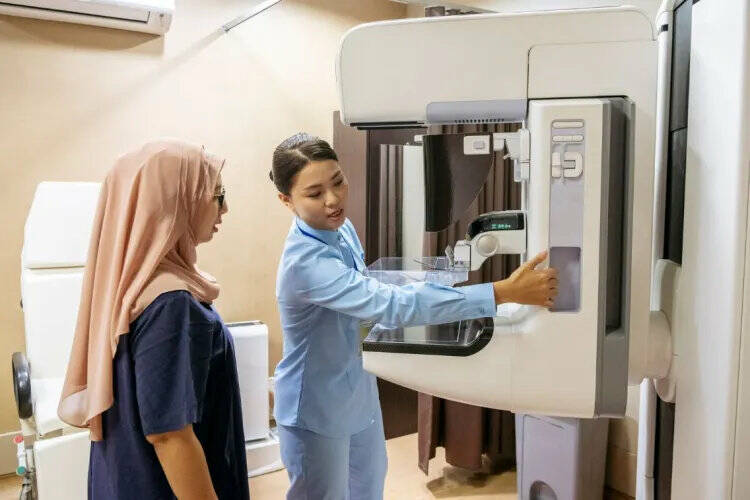The following was originally published by Public Health Insider, the official blog for Public Health — Seattle & King County. For more information, go to publichealthinsider.com.
By now, you’ve probably heard that finding breast cancer early through regular check-ups can save lives by helping doctors treat cancer more effectively and improving survival rates. Yet despite advances in treatment, breast cancer is still a common cancer among women around the world, and it is still a leading cause of death from cancer. Alarmingly, a recent study by the American Cancer Society found that breast cancer rates are rising among young women. What might be behind this trend? Young women sometimes are not aware of their risks, which can lead to late diagnosis and treatment.
That’s why it’s worth repeating that the best way to fight breast cancer is to catch it early and get screened regularly, regardless of age. Mammograms, clinical breast exams, and self-examinations help find breast cancer when it is easier to treat. Regular mammograms can detect breast cancer before symptoms appear. Early detection allows for earlier intervention, which can significantly improve prognosis. It also opens up more treatment options, potentially less invasive and more effective.
High cancer rates, low screening rates in WA
In Washington, around 137 women per 100,000 were diagnosed with breast cancer from 2017 to 2021, making it the ninth-highest rate in the country. Despite this, only 64% of the state’s women ages 40 and older received mammograms from 2021 to 2022, placing our state among the lowest in screening rates. Both in Washington and nationwide, Black women are diagnosed at lower rates but are more likely to die from breast cancer than white women. The American Cancer Society reports that breast cancer death rates haven’t improved for Native communities over the last 30 years. Moreover, between 2012 and 2021, breast cancer cases in Asian American/Pacific Islander (AAPI) women of all ages increased by 2.5%-2.7% each year.
Helping everyone get screened
For many individuals, the cost of screenings is a problem. That’s why the Breast, Cervical, and Colon Health Program (BCCHP) provides free and confidential breast and cervical cancer screenings for eligible people. King County’s Community Health Access Program (CHAP) can help you determine if you’re eligible. If you don’t have insurance or have a high deductible, call 800-756-5437 or visit kingcounty.gov/chap to find out if you can get FREE screenings.
Screening guidelines
The American Cancer Society recommends the following guidelines for breast cancer screenings:Women aged 40 to 44: Annual mammograms are optional.
Women aged 45 to 54: Annual mammograms are recommended.
Women aged 55 and older: Mammograms every two years or continue yearly screening.
Regardless of age, women should know how their breasts usually look and feel and report any changes to a healthcare provider right away.
Transgender people, especially transgender men and non-binary people assigned female at birth, should also follow these screening guidelines based on their risk factors and medical history.
Understanding risk factors
Risk factors for breast cancer include family history, genetic mutations, lifestyle factors, and specific reproductive histories.
For example, a diet high in processed foods, sugars, and unhealthy fats can contribute to weight gain, which is a known risk factor for breast cancer. Maintaining a healthy diet with plenty of fruits, vegetables, and whole grains can help reduce this risk.
Knowing your risk factors can help you and your healthcare provider make informed choices about how often to get screened and what other steps to take to stay healthy.
Take action
October is Breast Cancer Awareness Month, an opportunity to learn about the importance of screenings and to support those affected by breast cancer. By encouraging friends and loved ones to get regular screenings and using programs like the Breast, Cervical, and Colon Health Program (BCCHP), we can help reduce the impact of breast cancer in our communities.


